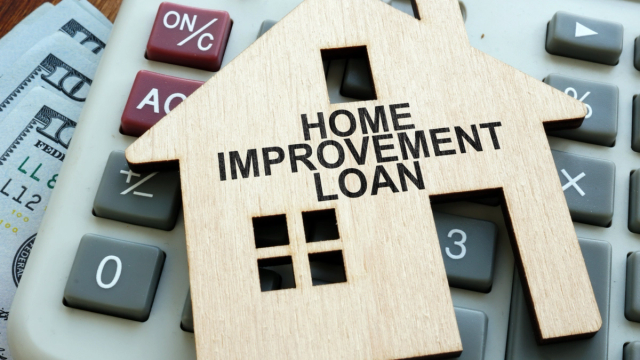The Contractor’s Guide to HVAC Financing Solutions
As homeowner interest in HVAC financing grows, contractors need to be well-informed about the options available to them and their customers.

HVAC industry veterans know that it wasn’t so long ago that homeowners paid for your services with cold, hard cash. If customers didn’t have the cash, they either borrowed it from somewhere, or they went without.
Today is a different story. While cash remains the most common way customers pay for home services, 29% of surveyed homeowners expect to find HVAC financing not through their bank or credit card, but through their contractor.
If you’re a frequent visitor of this blog, you’ve likely read our previous take on how offering financing can add value to your business. But to know which financing solutions to offer your customers, you’ll first need to understand two things: your homeowner’s needs and the financing options themselves.
The HVAC financing options you’re most likely to come across in your research are:
- Promotional credit cards
- Fixed-rate loans
- Same-as-cash or deferred-interest loans
- Lease-purchase or rent-to-own programs
Let’s take a quick look at each of these solutions below.
Promotional Credit Cards
Promotional credit cards are an excellent tool for offering financing to customers with ongoing credit needs. These cards are revolving credit, meaning the borrower has one line of credit they can borrow against and pay down repeatedly. The lender sets the spending limit and requires a minimum monthly payment.
To clarify, we’re talking about credit cards offered through the contractor as a payment option for their services — not store credit cards, like the Lowe’s Store Card or Home Depot Consumer Credit Card, which consumers can acquire independently.
Homeowner Appeal: Reusable Line of Credit
Homeowners may prefer this HVAC financing option if they plan to borrow against this credit line often or in the near future (if they have a service contract with your business, for instance). Promotional credit cards have a revolving credit line, eliminating the need to apply for financing each time they need credit. Not only does it save them time, but they avoid multiple pulls on their credit, which can temporarily hurt their credit score.
Plus, lenders often offer homeowners a financial incentive they receive upon approval, such as deferred interest or a 0% intro APR.
Keep in Mind: High Interest Rates and Strict Requirements
Promotional credit cards tend to have much higher interest rates than other types of financing (we’re talking rates in the high-20s, in many cases). Unless the homeowner is taking advantage of a zero-interest promotional period or plans to pay more than the minimum payment each month, they won’t want to carry a balance.
Furthermore, these cards are often not affiliated with a major credit card network (e.g., Visa, Mastercard), limiting their use to service professionals and home improvement stores that accept the card. In other words, Joe Homeowner can’t foot the grocery bill with his home improvement credit card.
Finally, the barrier to approval can be high, limiting your customer pool to homeowners with prime or super prime credit scores. This is because contractors offering promotional credit cards as an HVAC financing option often do so through larger financial institutions, which prefer to keep their borrower pool low-risk.
Fixed-Rate Installment Loans
Fixed-rate installment loans are a staple among HVAC financing companies. These loans are one-time credit offers with a set loan amount, a set number of payments, and a set period for repayment. If you know how an auto loan works, you know how a fixed-rate installment loan works.
Homeowner Appeal: Predictability and Stability
Fixed-rate installment loans are popular — and for more reasons than just covering an expense homeowners lack the cash for. The set payment number and unchanging interest rate mean the payment will be the same each time.
This not only makes fixed-rate loans easy for homeowners to budget for; it also gives them the potential to improve their credit scores. (Demonstrating consistent on-time payments over a long period of time is a green flag for credit agencies.)
Keep in Mind: Credit Score and Lender Risk Tolerance
While making on-time payments can raise a homeowner’s credit score, homeowners with low credit scores at the time of application can struggle with finding a lender who will approve them for an HVAC loan. Or, if they are approved, their terms are likely to include a higher interest rate. This is a common practice called risk-based lending.
Of course, some lenders are willing to look beyond a homeowner’s credit score during the underwriting process. At FTL, for instance, we consider additional factors, like household income, when deciding whether to approve a homeowner for HVAC financing.
Homeowners should also examine the loan terms for mention of prepayment or payoff penalties. While paying off the balance as quickly as possible may seem like the best financial strategy, some lenders will charge a fee if the loan is paid off early. Not every lender will charge prepayment penalties (we don’t!), but some certainly will, so we recommend checking the fine print.
Same-As-Cash Loans
Same-as-cash loans, or deferred interest loans, are a short-term financing solution that you’ve likely seen offered in other consumer categories (think: mattresses, appliances, furniture).
With same-as-cash financing, the lender delays interest on loans during a set promotional (promo) period, making them a great selling tool for businesses running seasonal deals or looking to drive short-term sales. (In some cases, homeowners also won’t owe a monthly payment during the promo period.)
Promo periods in the HVAC financing space usually run for 30, 60, 90, or 120 days. The homeowner won’t owe any interest so long as the principal balance is paid in full before the promo period ends.
Homeowner Appeal: Delayed Interest and the Time Value of Money
The most obvious appeal to same-as-cash financing is the potential to delay payment without incurring interest. Homeowners waiting on incoming money, such as an expected bonus or energy efficiency rebate, may be especially drawn to this type of financing.
These homeowners are choosing financing in the present to free up their cash-on-hand for other matters, knowing they can work the expense into their budget in the future.
Keep in Mind: Backdated Interest and Dealer Fees
The main appeal of a same-as-cash loan is the lack of interest payments. However, suppose a homeowner fails to pay off the loan by the end of the promotional period. In that case, interest kicks in on the current balance, and they’ll pay interest backdated to the original purchase date.
The minimum payments for same-as-cash loans won’t be enough to pay off the loan by the end of the promo period, so homeowners who can only afford the minimum payment amount likely won’t be a good fit for this type of financing.
You’ll also owe dealer fees, meaning you’ll pay the lender a percentage of the loan amount each time a homeowner is approved for a same-as-cash offer. This fee is usually a one-time cost, but it’s best to confirm with your financing partner what they’ll charge.
HVAC Leasing Programs
Homeowners who don’t qualify for traditional HVAC financing may turn to a lease-purchase or lease-to-own agreement. In this scenario, homeowners pay a monthly rental fee for the HVAC unit installed in their home. Each monthly payment counts as credit toward a total cost-to-own, but the lessor maintains ownership of the unit during the rental agreement period.
Homeowner Appeal: Subprime Credit-Friendly
HVAC leasing programs have more forgiving eligibility requirements than other financing solutions. Instead of looking at a homeowner’s credit profile, these programs typically require homeowners to show proof of things like homeownership, income, and an active checking account. This makes them a good option for homeowners that likely wouldn’t qualify for other HVAC financing due to poor credit.
The other upside to not owning the equipment? The rental agreement covers all repairs and maintenance, meaning homeowners won’t pay additional money out of pocket should the unit need service.
Keep in Mind: Higher-Risk Credit Means Higher Interest Rates
The borrower pool for lease-to-own contracts includes homeowners with high-risk credit profiles. As a result, interest rates for these programs are significantly higher, so homeowners will owe more overall than they would with other financing solutions. Because of this, homeowners who think they have a good chance of qualifying for traditional HVAC financing options should try that route first.
Also, remember when we talked about homeowners not being responsible for maintenance or repairs? Well, the upshot of that perk is that they have no say in who services the equipment — they’re bound to the lessor or the lessor’s chosen vendor.
Finally, homeowners can cancel their lease-to-own contract before the term ends or choose not to pay the buyout price at the end of the term, but they’ll need to surrender the equipment. This also makes selling their homes a little trickier: if they move before they’ve paid the buyout price, they’ll be selling a home without an HVAC unit.
These considerations may have little bearing on a homeowner’s decision if they’re genuinely in a bind, but it’s still best that both you and they enter the agreement fully informed beforehand.
Conclusion
Sorting through all the HVAC financing options available can seem overwhelming, especially if you’re just starting out. Each homeowner’s situation is unique, and each lender will have their different eligibility requirements and credit limits. Realistically, a single HVAC financing company isn’t going to have programs to suit every single customer profile.
That’s why it’s good to consider partnering with more than one lender to increase approval odds. Or we recommend asking a potential lender what partnerships they have with other financing companies. At FTL, for instance, we’ve forged partnerships with HVAC financing companies that offer programs we don’t. If their homeowner doesn’t meet our credit requirements, our contractors don’t need to spend time hunting down a different solution.
Need more help in your search? Let one of our financing experts help you select the HVAC financing programs that work for your business
 Financing EssentialsInside the Homeowner Loan Approval Process: What Contractors Need to Know
Financing EssentialsInside the Homeowner Loan Approval Process: What Contractors Need to Know Financing Essentials3 Ways Financing Helps Close More Small HVAC Service Jobs
Financing Essentials3 Ways Financing Helps Close More Small HVAC Service Jobs Financing EssentialsHome Improvement Loan Types: A Simple Overview for HVAC Contractors
Financing EssentialsHome Improvement Loan Types: A Simple Overview for HVAC Contractors